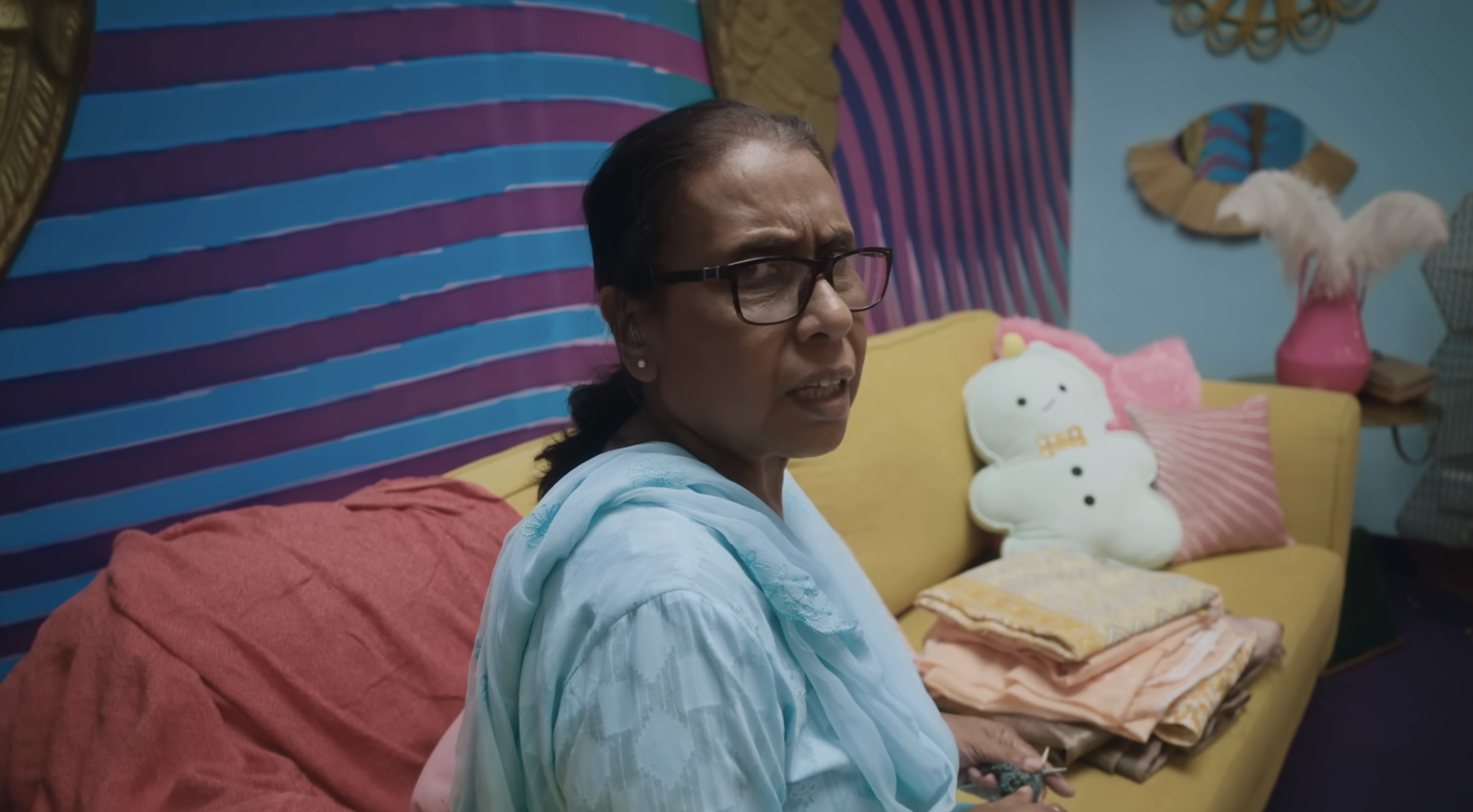Back in 2010, when “LSD: Love Sex Aur Dhoka” hit the theaters, the concerns revolving around mass surveillance were still in their dormant stage. In the decade that’s followed, reports regarding similar concerns have raised remarkable questions regarding the ethics of the same. In that regard, making a spiritual sequel to the film came with the hefty challenge of recontextualizing the experimental essence of that movie while also addressing the fundamental watering down of privacy at large. The operative device of “LSD 2”, then, becomes the discerning eye with which we perceive the world. The fact that the discern comes as deep fakes and trolls through metaverses and virtual godmen forms the narrative push. There are no MMS scandals or sting operations serving as conflicts. The conflict is in the act itself, where everyone is a character.
Dibakar Banerjee once again gives us three snapshots with interlinking story threads. While we get to watch facets of the social media generation, co-writers Shubham and Prateek Vats (“Eeb Allay Ooo!”) distill well-observed social truths into these vignettes. The satire cracks in not through the heightened setting or the meta-commentary but through incidents that consistently reek of contemporary discourse. The inherently fractured yet kinetic avenue of experimental storytelling allows the fluid identity of the characters to flow. While the residual agency to individualism pushed characters in the first film to different points, “LSD 2” pokes at the collective hallucination we have ourselves in at the cost of that agency.
In the first part, aptly called ‘Like,’ we watch a trans woman’s viral stardom becoming the sensation of a reality show. Noor’s (Paritosh Tiwari) path toward self-actualization constantly gets punctured by the merits of her transformation and the means by which she drives her ratings in the show. The selfsploitation then comes secondary to the ecosystem she finds herself in. The truly meta-casting of Anu Malik as one of the three judges on the show comes across less as a joke than a reminder of how inseparable the text is from the subtext.

In ‘Share,’ we watch Kulu’s (an unhinged and ferocious Bonita Rajpurohit) mildly idealistic life get throttled by the wheels of social prejudice and institutional apathy towards the transgender person. While this discomforting reality gets echoed through the sinister duality of her employer, Lovina Singh (Swastika Mukherjee), it’s the stark contrast the section paints to the earlier story that builds the context.
While the reality contest aided Noor’s momentary journey towards validation, Kulu’s arc exposes how entitlement and empowerment may go hand in hand, but their dynamic with class divides would always be a function of each other. Only one of the two gets a choice of being off-camera, and while Noor’s fame was largely owing to her scripted actions on camera, Kulu’s systemic reckoning comes through something as destructive.
But the part that brims with the more pressing philosophical ideas is ‘Download.’ It explores the unraveling life of a young YouTuber, ‘Game Paapi’ (Abhinav Singh) – real name Shubham – during his hypermasculine rise to fame. His 10 million subscribers may be littered with trolls and memes, but his ultimate redemption comes through in one of the most memorable movie endings of the year. It builds toward something that the film had hitherto normalized, yet the resolution feels perturbing because we know it’s artificial; the diegesis it builds around is already the reality we live in. The thrills in this live stream don’t come while watching it, but once it’s ended.
The indifference the 2010 film had toward its framing device was also when we looked at every new form of technology with apprehension. That feeling is nowhere to be found in “LSD 2”; the cameras are everywhere, even when they’re not. The end-to-end encryption disclaimer we see on WhatsApp while watching a private video call in the film serves as the punchline. It’s not a cautionary tale. It’s a reminder of the collective cascade we’re already in.





![Hostages [2017] – Tense and Tragic Drama Set Behind the Iron Curtain](https://79468c92.delivery.rocketcdn.me/wp-content/uploads/2017/12/cover-768x432.jpg)
